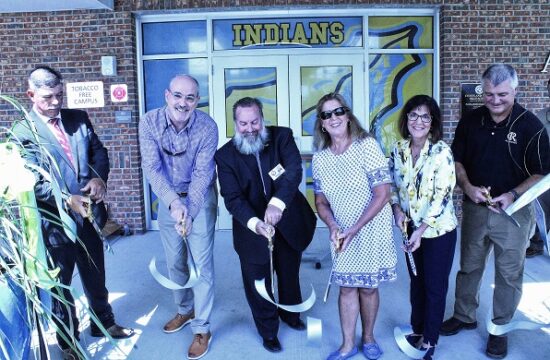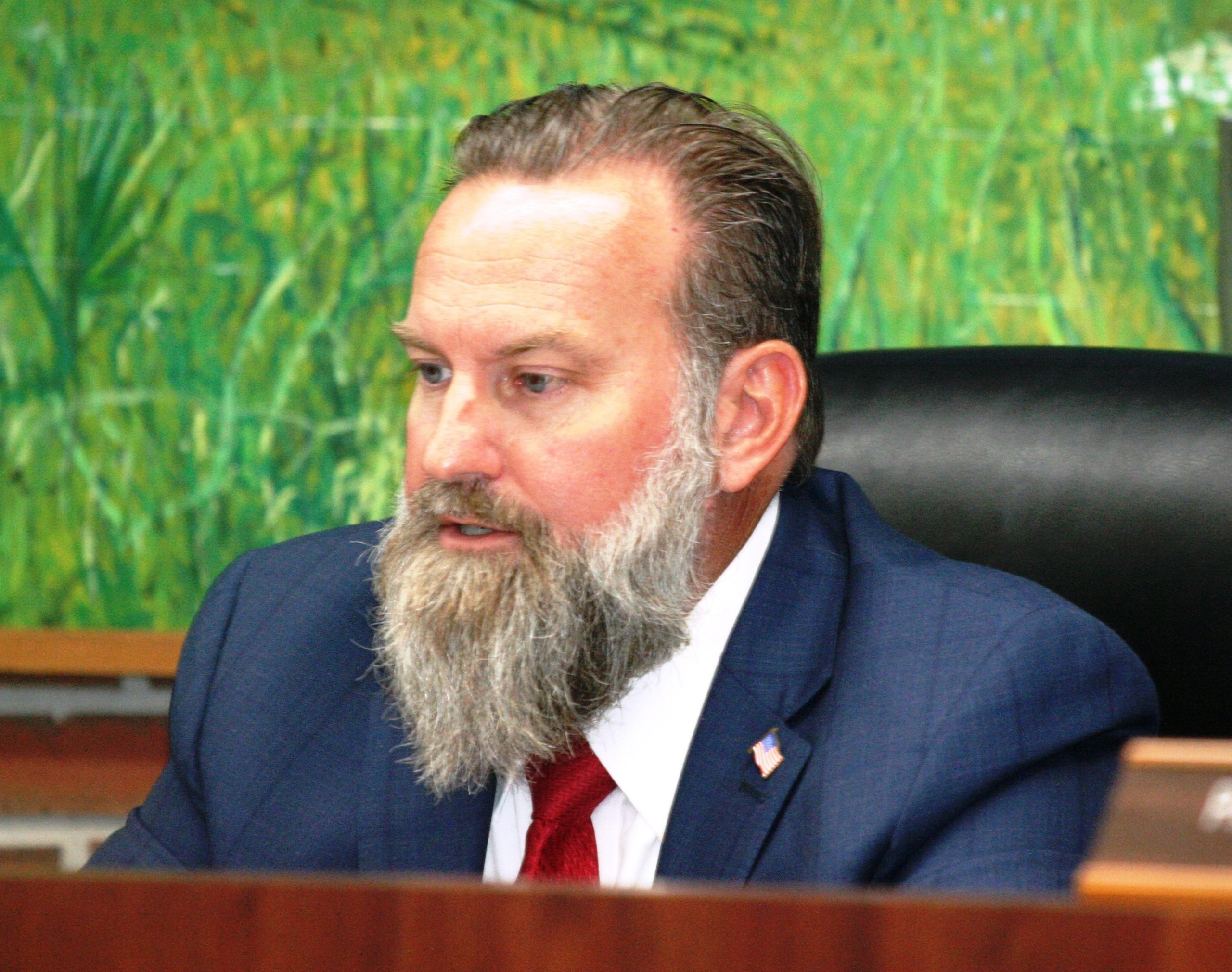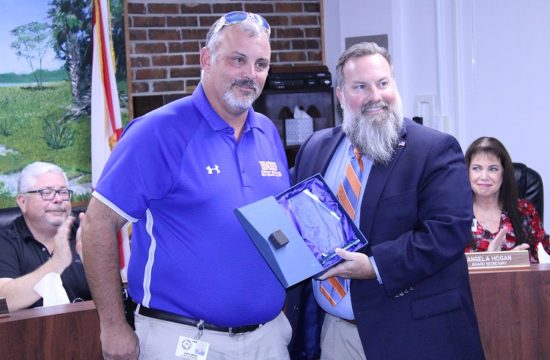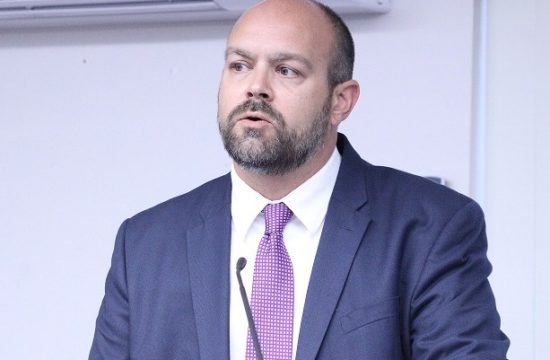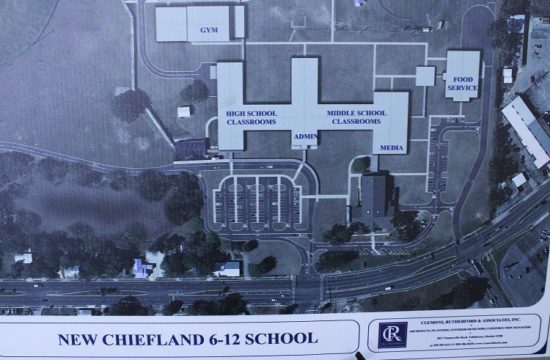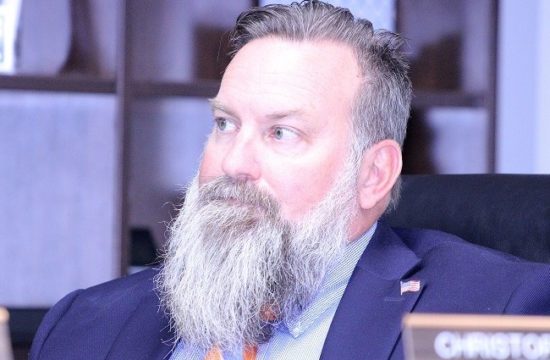By Terry Witt – Spotlight Senior Reporter
Voters in Florida will have a buffet of 13 proposed constitutional amendments to choose from in the Nov. 6 general election, with some being more appetizing than others depending on your tastes.
The last eight amendments on this year’s ballot come from the state Constitution Revision Commission. The commission chose about 20 proposals for the November ballot but decided to cluster multiple proposals together in the eight amendments. In some cases, voters will be asked to approve or reject multiple proposals, many of them unrelated, in a single amendment.
Levy County School Board members briefly discussed the amendments Tuesday and several board members were of the opinion that voters are being asked to consider too many amendments on the November ballot. Superintendent Jeff Edison agreed with the board.
“I personally am concerned there is so much information that people are not going to make themselves aware of everything,” Edison said.
AMENDMENT 1 would increase the Homestead Property Tax Exemption to $75,000 for the more valuable homesteads on the tax roll.
Homeowners who claim the original homestead exemption are exempt from the first $25,000 of value. The exemption affects all local governments including the school board, county commission, and cities.
Homeowners also currently can claim a second $25,000 Homestead Exemption for property valued over $50,000. School board revenues aren’t impacted, but the county commission and cities lose tax dollars.
The proposed third Homestead Exemption would apply to homestead property valued at between $100,000 and $125,000. The school board won’t lose revenue, but county commission and cities will.
The total loss of property tax revenue statewide is estimated to be $645,000 million. The Levy County Commission has complained about the potential loss of revenue locally if the measure passes.
The Florida Legislature voted to send the amendment to the ballot.
AMENDMENT 2 is intended as property tax relief for non-homestead property. The amendment makes permanent, an existing cap on increases in value. Non-homestead assessment increases have been limited to 10 percent of the previous year’s value since 2008 when a different constitutional amendment capping increases were passed by voters.
The Florida Legislature voted to send the amendment to the ballot.
AMENDMENT 3 was placed on the ballot by citizens. It would give voters the exclusive right to decide whether to authorize casino gambling in Florida. The authority currently rests with both the Legislature and voters through a previously approved constitutional amendment.
AMENDMENT 4 was placed on the ballot by citizens. It would restore voting rights to former felons if they have served their time, with the exception of those who have committed crimes like murder or sex offenses.
AMENDMENT 5 would require a two-thirds supermajority vote of the entire Legislature to impose, approve or raise state taxes or fees. The higher threshold means it would take only a third of the members in either the state House or Senate to block any future tax increases or repeal existing exemptions. The idea would also stop any provisions to raise taxes or fees from being tacked onto other state bills. It would not apply to any fees or taxes that would be levied by local governments, or agencies, such as school districts.
The Florida Legislature placed the amendment on the ballot.
AMENDMENT 6, the first of the eight Constitutional Revision Commission’s items, links three proposals that would create a bill of rights for crime victims and a set of new guidelines for judges. The latter two proposals increase the mandatory retirement age for judges from 70 to 75, effective July 1, 2019, and would provide that judges or hearing officers should not ask governmental agencies to interpret laws and rules in legal proceedings.
AMENDMENT 7 tethers three proposals together, providing college tuition for the survivors of first responders or military members killed on duty; requiring university trustees to agree by a two-thirds supermajority to raise college fees (not including tuition); and establishing the state college system in the Florida Constitution. Universities are in the Florida Constitution, but state colleges (also known as community colleges) are not.
AMENDMENT 8 rolls together three education-related proposals. It would limit school board members to eight years in office; expand civics education in public schools, and create a controversial plan to enable charter schools to bypass local school boards by expanding the state’s authority to control and supervise them.
The Levy County School Board found the amendment objectionable. Edison said the school district already teaches civics. School board members oppose term limits and allowing charter schools to bypass local school board authority in favor of state control.
AMENDMENT 9 prohibits offshore oil and gas drilling, and it also prohibits vaping in enclosed indoor workplaces. The two issues have nothing to do with one another. It is another example of clustering unrelated political issues in one amendment. Vaping is a form of smoking.
AMENDMENT 10 would link four proposals; one would have the state’s legislative session starting in January rather than March in even-numbered years (the legislature currently changes its dates by statute); two would create a counter-terrorism office and make the state veterans affairs department constitutionally required; and a final proposal would require every county to have five county-level elected offices.
All of the county positions – including tax collectors, property appraisers, supervisors’ of elections and clerks of courts – are already elected in many counties including Levy, Gilchrist, and Dixie. The office of sheriff is also an elected position in all three counties in the tri-county area, but Miami-Dade is the only county in Florida that does not elect a sheriff and instead appoints a police director.
AMENDMENT 11 deals with property rights, a high-speed rail system and removal of a criminal law. None of the three are related. It would revise the state Constitution to remove language that stops “aliens ineligible for citizenship” from owning property. It also provides wording approving a high-speed rail system. It would clarify that repealing a criminal statute would not affect the prosecution of a crime committed before the statute was removed from the books.
AMENDMENT12 would bar public officials from lobbying during their terms and for six years following, and restrict current public officers from using their office for personal gain.
AMENDMENT 13 would end commercial dog racing involving wagering by 2020. There are about a dozen tracks in Florida, and the practice has drawn criticism from animal rights advocates who assert that the practice is inhumane. The Florida Greyhound Association has sued seeking to remove the amendment from the ballot.
Edison pointed to Amendment 13 as another example of the legislature using constitutional amendments to make laws instead of using the legislative process in Tallahassee.
One audience member dubbed the practice legislating by constitutional amendment, which drew praise from members the audience and the board.
School Board of Levy County Meeting June 25, 2018
Posted June 29, 2018



